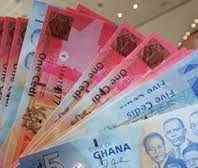Activities of individual susu collectors and enterprises fall
under the tier four of the new licensing regime.
General Secretary of the Association, Obed Yaw Asamany, says there are over 500 registered members, out of which 363 have been issued with the Bank of Ghana’s operating license.
General Secretary of the Association, Obed Yaw Asamany, says there are over 500 registered members, out of which 363 have been issued with the Bank of Ghana’s operating license.
According
to him, the sector is surviving competition based on clients’ trust and
flexibility service delivery.
“In
the various districts and communities, they are scattered around and they
provide the financial intermediary services to the public... the market women
appreciate the work they do and it’s very convenient; they take banking to the
doorstep of the non-banked in the population,” he stated.
Traditional susu collectors have in years past provided an
informal means for Ghanaians to save and access credit, mostly serving
low-income earners.
The industry has however been fraught with fraud and other illegalities as available statistics indicate about 69 percent of susu collectors are not registered.
The industry has however been fraught with fraud and other illegalities as available statistics indicate about 69 percent of susu collectors are not registered.
The
GCSCA has therefore intensified capacity building of members to deliver
efficient and affordable financial services to the non-banked.
The
Association is also receiving support from the Business Sector Advocacy
Challenge (BUSAC) Fund to undertake a stakeholder’ consultative process to
promote a broadened regulatory framework for the susu sector.
Project
Consultant, Felix Quansah says the security of clients’ savings is of paramount
interest in the process.
“GCSCA
was able to secure the mandate of Bank of Ghana to do self-regulation; however
this mandate did not extend compliance, enforcement and sanction, so the
effectiveness of the self-regulation is constrained,” he observed.
The
consultative process is therefore aimed to putting together a preposition for consideration
by the Bank of Ghana for incorporation into the regulatory framework.
 The
first consultative engagement, involving the Bank of Ghana, the Ghana Revenue
Authority, local assembly, the susu collectors and the savings public was held
in Kumasi.
The
first consultative engagement, involving the Bank of Ghana, the Ghana Revenue
Authority, local assembly, the susu collectors and the savings public was held
in Kumasi.
The
Association is hopeful a final proposal to the Bank of Ghana will be ready before
end of year.
Story
by Kofi Adu Domfeh







No comments:
Post a Comment